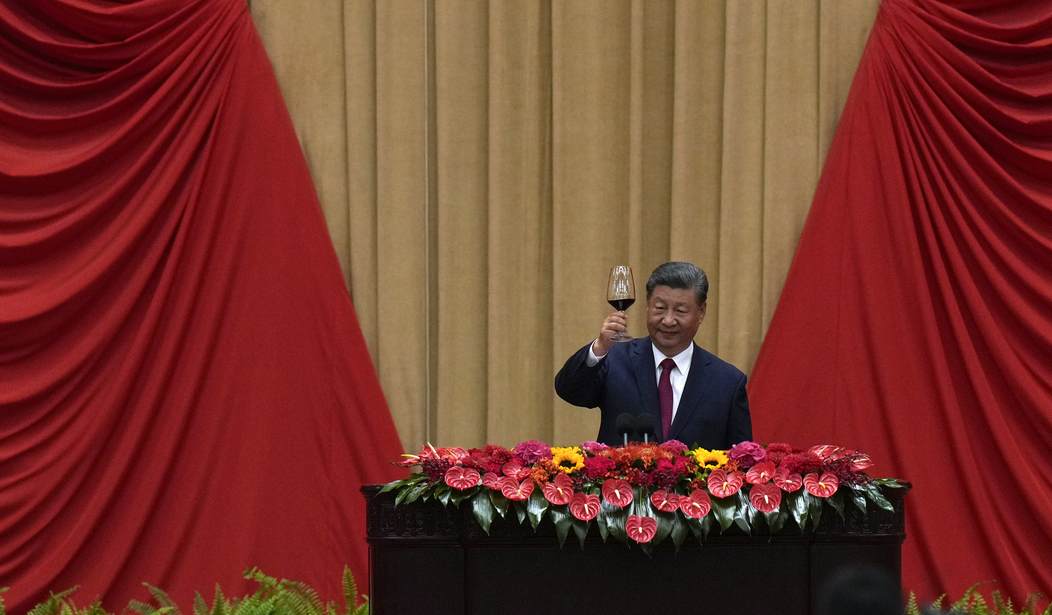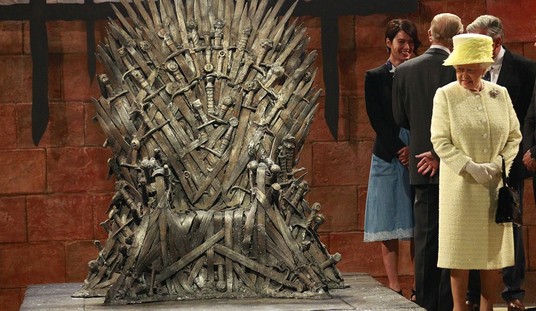As I've described many times, I've spent a fair amount of time working and socializing in Japan. My wife speaks and reads Japanese; we love the country, the culture, and the people. But we couldn't live there permanently; every time we muster up a little hubris thinking we have a pretty good bead on Japanese culture, we run across something so utterly incomprehensible to Westerners that we may as well come from different planets.
China is even more different. China is a place that is bafflingly different, almost alien, to Americans in general and people who are products of Western civilization as a whole. Part of that is China's history, the current makeup of the nation we call China, and, amazingly, the fact that China isn't a nation-state as we're accustomed to thinking of the term; China, the Chinese Communist Party (CCP) notwithstanding, remains, today, an empire.
"Asia Time" Deputy Editor David P. Goldman, at the excellent website "Law & Liberty," has penned one of the best evaluations I've ever seen of the Middle Kingdom.
Westerners think of a nation in organic terms: Nations begin with a common language, culture, and religion. They coalesce from tribes and clans, and then decide what sort of state they will have and what those states will do. The reverse has been true in China since its earliest beginnings, shrouded in legend and unearthed by archaeologists: The Chinese state created China, not vice versa. The core of the country is the enormous flood plain defined by the 8,000 miles of the Yellow and Yangtze Rivers. Taming the floods and irrigating the fields made it possible for successive Chinese dynasties to assimilate peoples who still speak 200 dialects today out of six major language groups.
That may be one of the biggest indicators of just how different China is from the West. It's a supposed nation-state, unified under one governing system - the Chinese Communist Party - largely under the control of one man, effectively an emperor - Xi Jinping. And yet they have a wildly varied population, without even a common language. Some of those ethnic groups are part of the mainstream of Chinese society. Others, like the Muslim Uyghurs, are relentlessly persecuted.
And the Chinese people seem to accept this. Much as we might wish it, occasional student protests aside, there is no great movement for liberty and the impartial rule of law in China. As David Goldman notes:
Americans imagine that inside every Chinese person an American is struggling to get out. But China is different, so different that the categories of Western political science are meaningless. China will not change because we think it should, or because we want it to, or because we exhort the Chinese to embrace the benefits of democracy and free markets. If it changes, it will do so very slowly. We shall have to deal with China as it is, and has been for thousands of years. We can demonstrate the superiority of our system with economic growth, technological innovation, and military strength—although we haven’t done so of late. We can show that our ways are better—when we stick to our ways—and set an example. But we can’t change China by preaching to the Chinese.
And yet China harbors even more expansive and imperial ambitions, looking not only at what the CCP considers a rogue state, Taiwan, but also with some envy at places like the Philippines. We should not be surprised by this; this is what empires do. While it seems likely that the Chinese don't understand Americans any better than we understand them, the CCP does, however, understand very well that one nation represents a threat to their expansion: The United States of America.
See Related: There Is an Old Vulcan Proverb: 'Only Trump Could Go to China'
China Fails to Read the Room With Stern Warning in First Phone Call With New US Secretary of State
What's more, China understands, cultural issues notwithstanding, that education, hard, effective education, is the key to moving their nation ahead in its imperial goals. As Goldman further tells us:
Every Chinese person carries flash cards for the Gaokao, China’s formidable university entrance examination taken by 13.4 million Chinese in 2024. The United States has just 3.8 million graduating high school seniors; I doubt that 5 percent of them could pass the Gaokao. China is a ruthless meritocracy. Top officials and billionaires can buy admission to Harvard for their children, but not to Peking University. For well over two thousand years, academic achievement has been the path to success for the Chinese. It should be no surprise that China now graduates more engineers than the rest of the world combined.
These are the things that the United States, and the rest of the Western world, must understand and be prepared to counter. And we must remember, as I'm continually pointing out, that China thinks in terms of centuries, not decades. Their history encompasses not hundreds of years but thousands.
China is beset by many problems. Their economy is deeply flawed, plagued by a massive real-estate bubble and years of currency manipulation and central planning. Their population is about to drop off a demographic cliff. The one thing that all of the various ethnic groups in China seem to have in common is that they aren't having many babies. But, we must note, these are problems that the Western world suffers from as well; here in the United States, we are struggling under $36 trillion in debt, and our people aren't having many babies, either.
My own experience in China, unlike Japan, is very limited - three days in Shanghai auditing a medical OEM manufacturer. The first evening I was there, I left the hotel to walk to a nearby shopping district where there was a restaurant popular with visitors that I was assured was safe - no "gutter oil" or other hazards. When I walked out of the hotel, a young man was standing, chatting in a friendly manner with the two doormen. As I walked past, he followed, calling to get my attention. "You need a date?" he asked, showing me a handful of cards, each with a picture of a young Chinese woman. "I can get you a date," he insisted in pretty fair English.
"No," I told him. "I have a wife back in the States."
He looked utterly baffled. "So?" he asked. "She's not here." I think he was genuinely and utterly confounded at the notion that I might maintain my loyalty to my wife, even though she was thousands of miles away. I think the notion was incomprehensible to him.
China is our primary geopolitical rival. We, meaning the United States, must do business with them. We must conduct diplomacy with them. We must reassure our Western Pacific allies that we stand with them against any possible Chinese aggression. And, if it comes to that, we may well have to fight a war with China.
We may do all of these things. But the one thing we will probably never do is to understand them. And we have to deal with them accordingly - knowing that China will be what it is, and not what we would wish for it to be.














